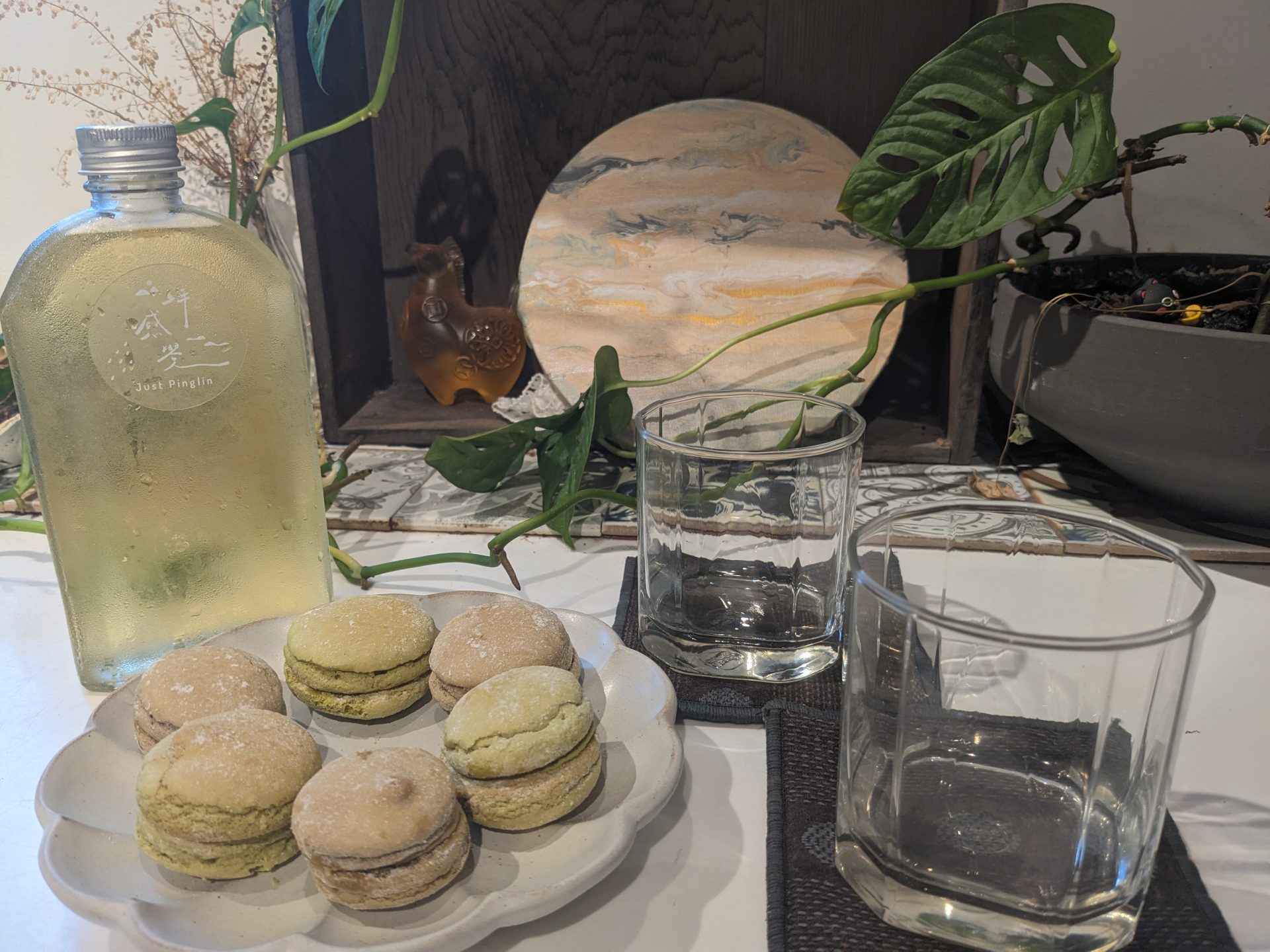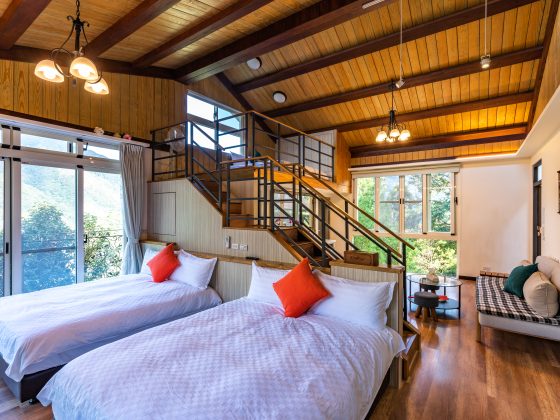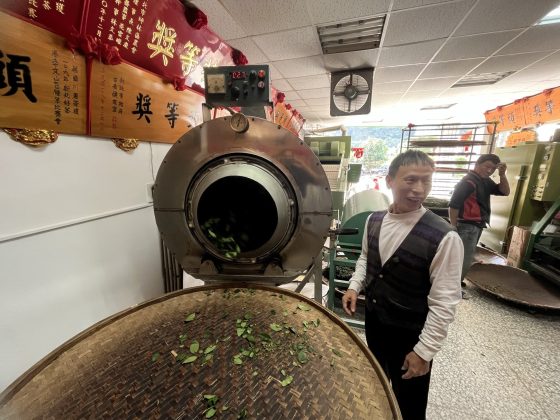Author / Photographer: Cat Thomas
Until 17 years ago, Pinglin was a thriving tourist stop on the mountain-winding route 9 between Taipei and Yilan on the East Coast. The opening of the Hsuehshan Tunnel in 2006 changed things dramatically. With the journey time slashed, travelers no longer stopped for a rest in the tea town. Business began to slow.
There were several obstacles to the town reinventing itself, not least of which is that the whole area is part of the Taipei watershed and therefore has been classed as a conservation area since the commencement of building of the Feicui Reservoir (翡翠水庫) in 1979, effectively removing the possibility of becoming an overnight destination, for example, despite the stunning tea-terrace-laden scenery.
As with many rural towns in Taiwan, the younger population tend to move out to find work in neighboring cities. Many return as their parents become too elderly for regular visits alone to suffice, maybe to take over the family farm or small business.
Despite these challenges, in recent years fresh ideas and businesses have sprung up in the merchant area.
Beyond the Lao Jie concept
Perhaps because of the drop in visitor numbers Pinglin has escaped the fate of other ‘old streets’ in Taiwan, which frequently fail to offer visitors much in the way of innovation, with business owners opting for tried-and-tested formulaic tourism offerings, usually the local speciality plus mochi and a couple of old timey toyshops to satisfy passing tourism. While you’ll still find grandma-and-grandpa run basics in Pinglin, the younger generation is gaining ground: Returnees, fresh blood, and those who simply decided they wanted to make a go of it in their hometown are the new kids on the street and the fruits of their vision are beginning to grow.
These businesses have one thing in common, they are all intertwined with the culture of the township. The owners are deeply invested in the conservation and celebration of the unique culture of this peaceful area.
Coffee Culture
Andy Chen, 26, is a Pinglian who learnt how to roast coffee beans from his uncle, who supplies Taipei coffee shops with custom roasted beans. Although his family background is in award winning tea, he opened Hsuehshan Tunnel (雪隧18k咖啡) Cafe in 2021. The shop is a simple affair fitted out with wooden furniture from Taidong. He sells self-roasted beans — usually around 5 types are on offer — with Ethiopian Geisha being the most popular.
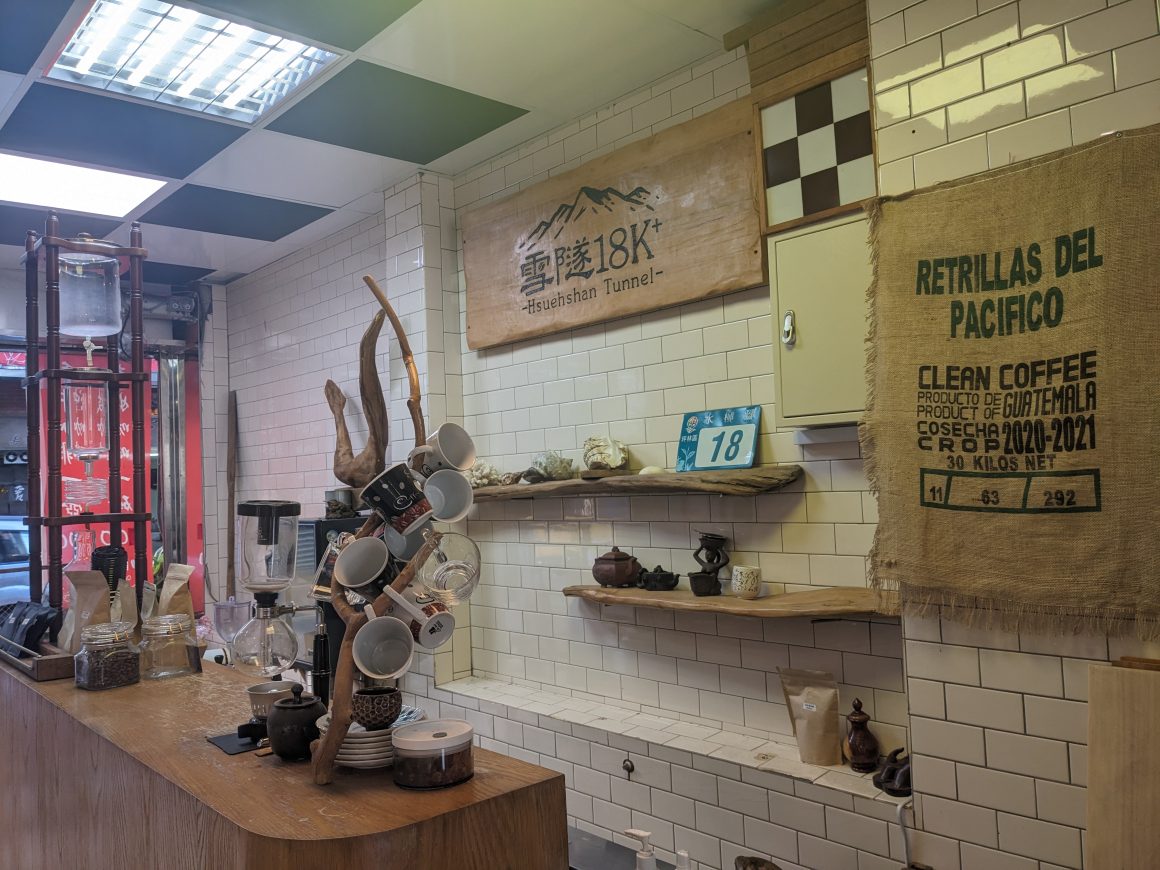
This is very much a pure coffee lovers place, so don’t expect lattes or macchiatos, but do take advantage of the mineral heavy local water to enjoy a sweeter tasting freshly made coffee.
Tours and more
The owners of Just Pinglin, Renee Wu, 34, and Wade Tsai, 34, started running tours of local tea farms a decade ago. Five years back, they opened an eatery to take advantage of foot traffic and start selling their own twists on local culinary favorites, such as a tea infused gua bao, alongside locally made handicrafts and treats.
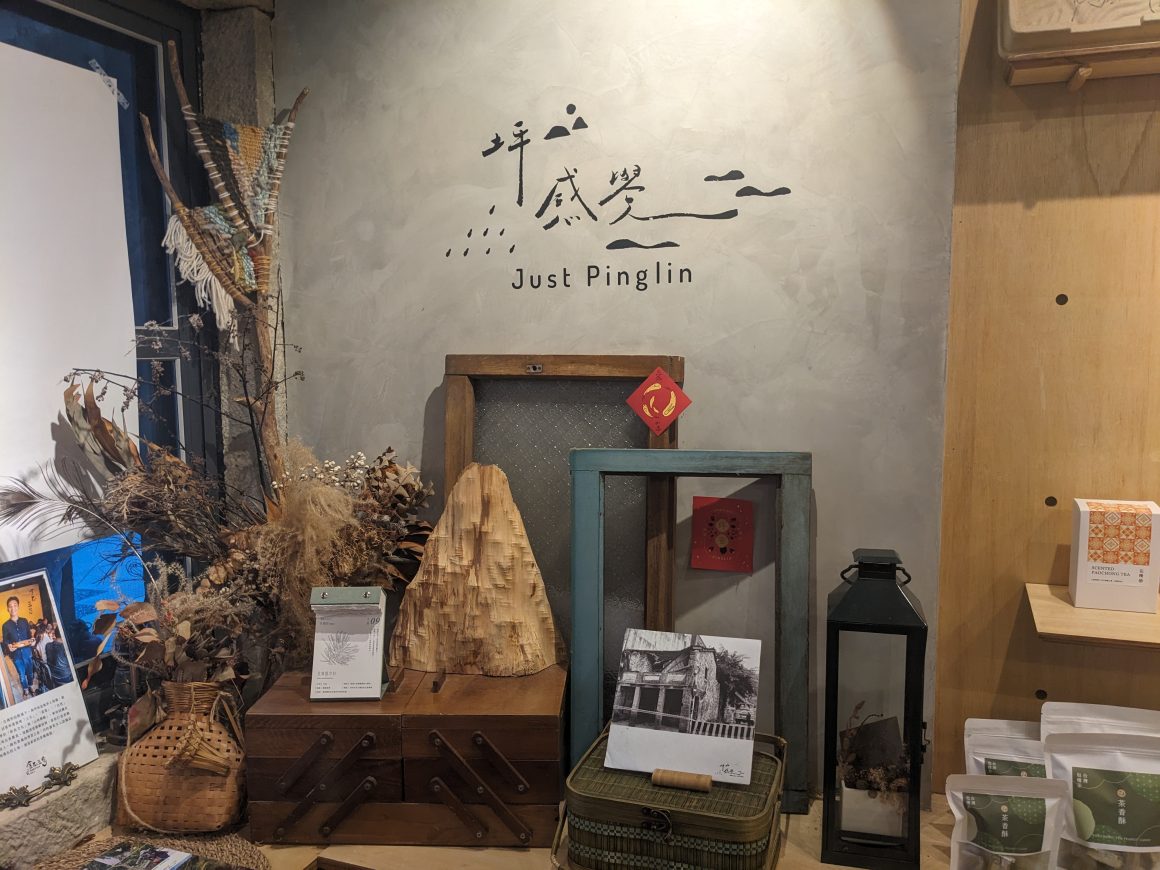
Their mission is to promote the area’s heritage to visitors. They hope their business can help introduce local products and an understanding of farming to the younger generation.
“Young people don’t know about tea culture,” says Renee. Just Pinglin works with several young tea farmers to arrange activities to increase the understanding of tea farming culture.
The couple use their design and eco-tourism backgrounds to help the farmers create events. Renee strongly believes that regular events help attract visitors to the area. She notes that the local government is investing in supporting ecologically friendly tours, and supporting measures like installing YouBikes, as well as holding Winter and Spring Tea Competitions to attract visitors.
Renee is positive about the development of the merchant area, observing that there are available shops which she hopes will fill up with more diverse businesses connected to the local environment. “Hopefully more creative people will join our efforts,” she adds.
“Just come to sit, browse the books, read, work, or simply sip tea and enjoy the atmosphere”
Candice Lin, 49, was in the publishing industry for over 20 years, giving her the inspiration to open Taiwan BlueMagpie Tea(藍鵲)bookshop as the local space for longstanding eco-project project River Basin Recovery, which she joined in 2019. Pinglin hasn’t had a bookshop for 100 years, so the space fills a need in the community. It follows the trend of local independent bookshops to provide a space for community activities and events.
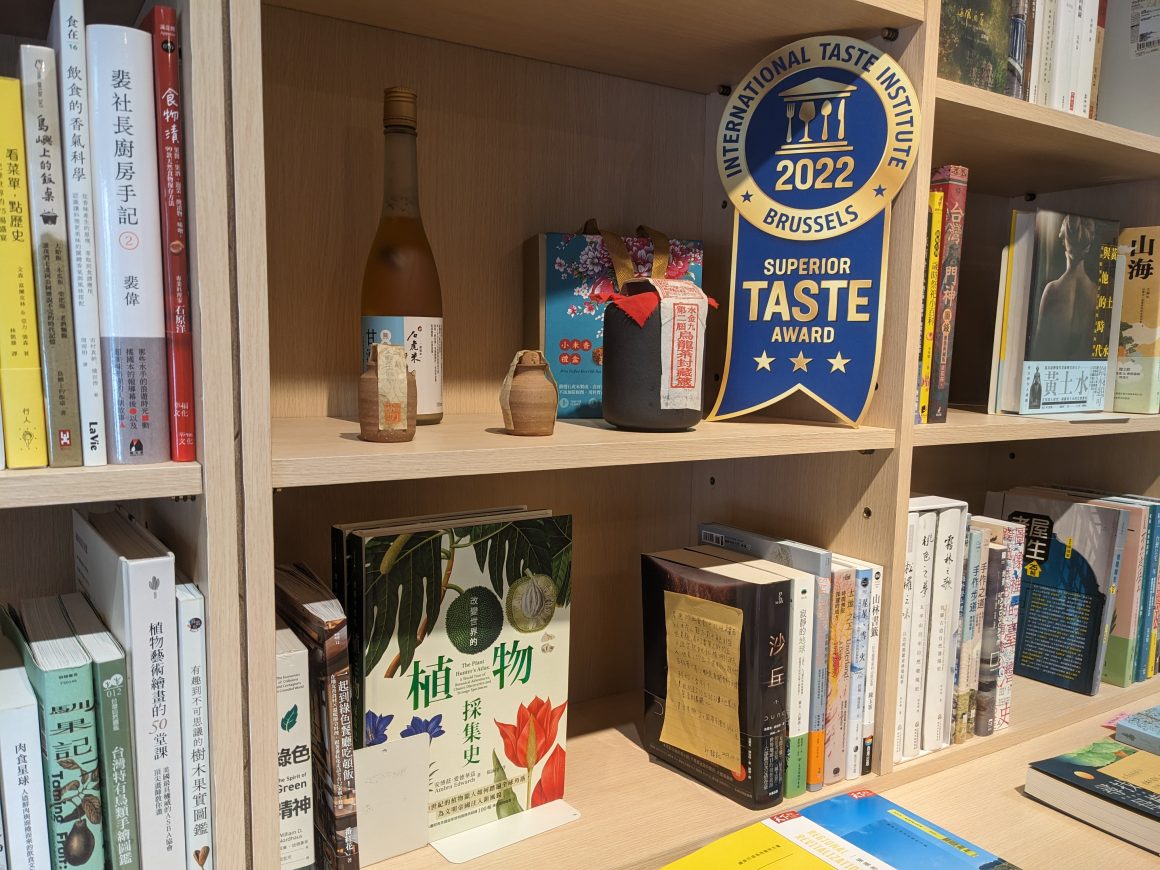
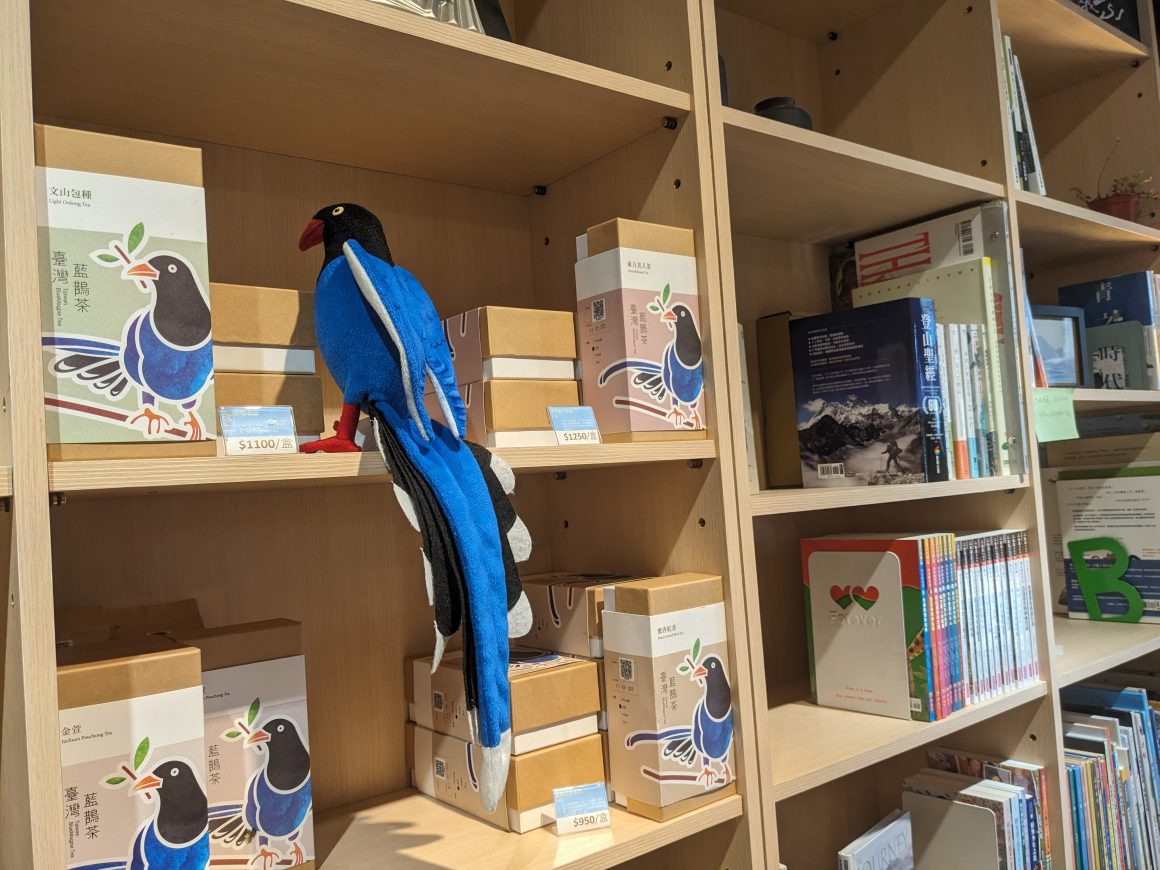
River Basin Recovery has been running for 12 years and currently works with 25 tea plantations to help them grow tea in an eco-friendly manner that focuses on preserving local wildlife and the quality of the water in the river that supplies much of the water to Taipei. The environment and local livelihoods all depend on the river.
“Pinglin culture is not just tea culture, the river culture is culturally more important,” says Lin. “Taiwan is an island and the farming culture is intertwined with the rivers and mountains.”
Alongside books, Blue Magpie also sells River Basin Recovery’s products, such as their teas and a Kaoliang infused with tea. The project also offers tours of tea plantations, the old street, and the riverside.
Supporting upcoming generations
Chou Yaozan, 54, left Pinglin in the late 1980s to become a baker and French pastry chef. He rose to own a small chain of bakeries in Taipei. Like many Pinglians, as his father approached his eighties Yaozan began to consider how he could return to help out with the family eco-tea farm yet put his considerable talents and experience to use.
His aims were twofold “I wanted to create jobs for locals and to be able to stay in Pinglin,” he said.
“People would visit and think there’s not so much to do here. But now it’s becoming more interesting, there are more options.”
SMAK is a coffee and dessert shop in a renovated century-old stone building. The combination of original stonework, classic furnishings, and the irresistible fragrance of French butter from baking cookies makes for a relaxing experience.
“Come to enjoy a coffee and our signature cheesecake, and perhaps pick up some of our cookies infused with local ingredients to take home,” suggests Yaozan.
Although SMAK only opened its doors around 3 months ago, Yaozan has plans to support the upcoming generation of Pinglians. On the second floor of his shop, he plans to run DIY workshops to share his knowledge about how to design and package goods to the kind of standards that entrepreneurs might use reach agreements to sell their products with big chains like PX mart or 7-11, or promote local farmers’ goods.
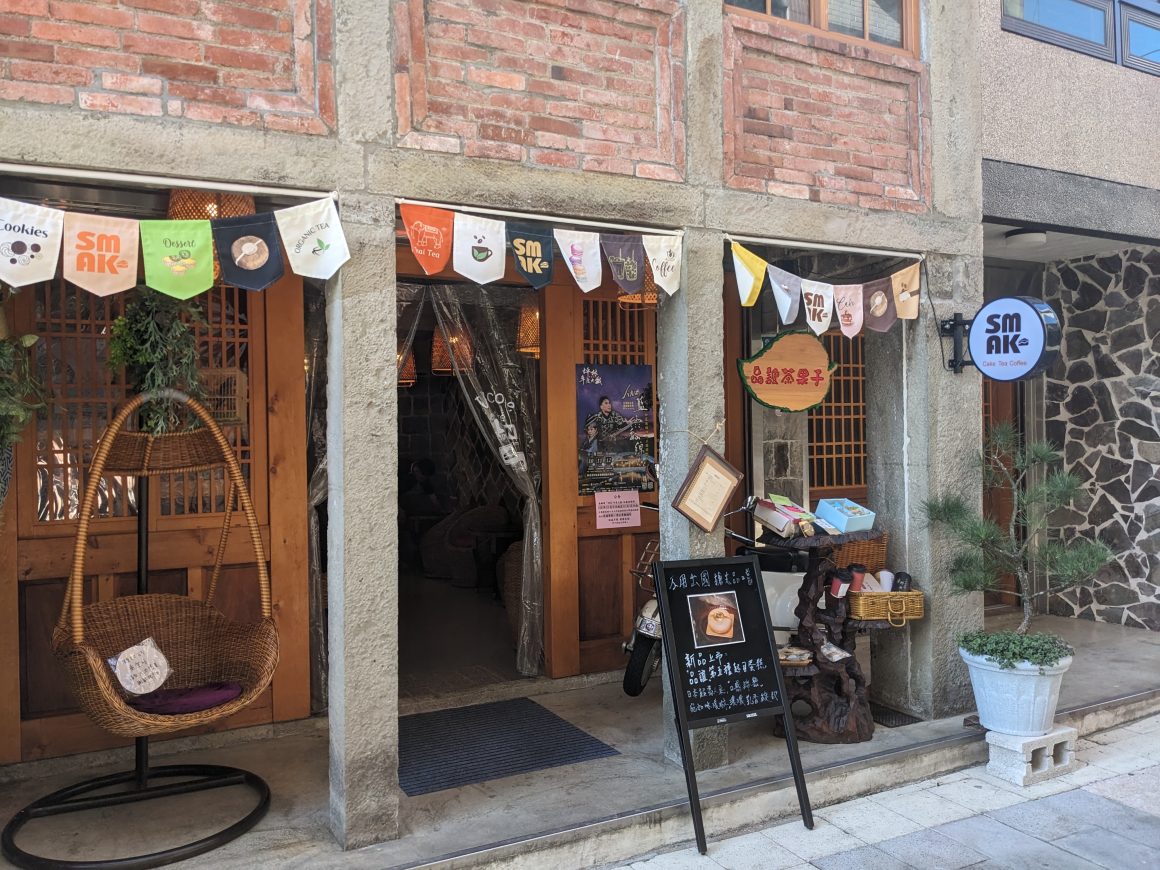
“Young people have more ideas about innovation in different directions other than just tea,” said Yaozan.
“If they stay in Pinglin they can learn skills and develop their own products,” he explains. “I hope that some people will listen to my story and perhaps decide to give it a go themselves, to become part of our ecosystem.”
Yaozan dreams of cooperation along the street snowballing and more young people choosing to open businesses there to encourage the commercial environment. “Everyone is welcome! Sometimes when you have competition it makes you stronger.”
Around Pinglin
There are 3 YouBike stations around Pinglin and several accessible bike paths, including along the riverside. Beyond the stunning tea plantation scenery, local sights include a suspension bridge, the tea museum and several well-marked hiking paths.
Tour options
Just Pinglin: Custom tours of tea farms and the old street for groups of 10 + cost NT$1,200 per person (10:00-16:00) and should be booked 2 weeks in advance.
Blue Magpie: Mandarin language tours for 15-40 people cost NT$1690 per person (10:00-15:00). Tours in Japanese and English for groups of 4-20 people cost NT$2000 pp. Must be booked two weeks in advance.
Getting there and getting away
For many, the route to Pinglin may be associated with heavy traffic, but nowadays the tunnel has freed up the mountain road, and the G12 bus runs hourly to and from Xindian MRT station along the scenic route 9. The 923 bus takes the tunnel route and is slightly faster, with a dedicated bus lane on Freeway 5 that allows passengers to swoosh past weekend traffic jams up to the the tunnel. For those who choose to drive, streetside parking is free, and there’s a multistorey carpark in the town (NT$20/HR).

